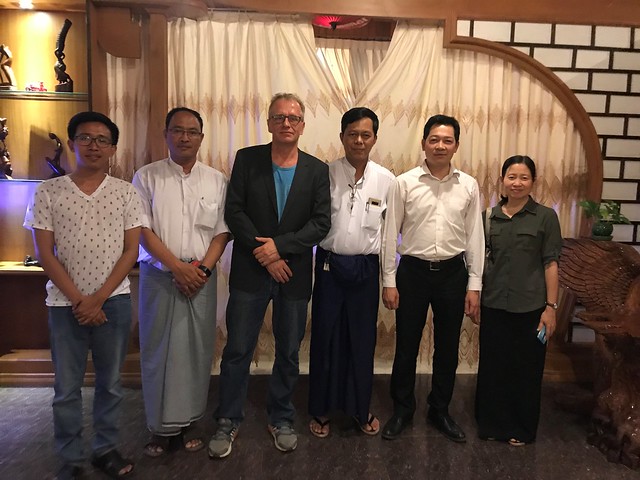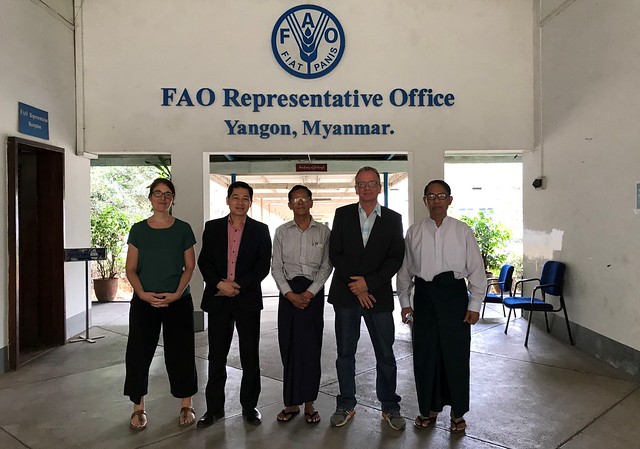
Myanmar and ILRI meetings seek to cement cooperation in livestock development
In April 2018, a series of meetings between the International Livestock Research Institute (ILRI) and Myanmar officials strengthened existing engagements and explored new opportunities to support livestock development in the country.
Hung Nguyen, ILRI’s regional representative for Southeast Asia, and Fred Unger, a senior scientist at ILRI, met officials from the Department of Livestock Veterinary and Breeding (LVBD), Ministry of Agriculture, Livestock and Irrigation (MOALI) in the capital city of Naypyidaw, Myanmar from 25-27 April 2018, to advance discussions that started in 2016.

Ye Tun Win, director general of LVBD (third from right) and his team discuss with ILRI delegates to unleash livestock research and development in Myanmar (photo credit: ILRI)
They met with Ye Tun Win, director general of LVBD and his team to renew discussions on supporting livestock research and development in the country. Their previous engagement had identified food safety interventions, antimicrobial resistance in poultry and pigs in commercial farms, genetic improvement of ruminants, and developing the country’s pork and beef value chains as priority areas of cooperation.
On 26 April, Nguyen and Unger met with Mar Mar Win and Ye Htut Aung, rector, and pro-rector of the University of Veterinary Science, respectively, to discuss potential collaboration in research and capacity development in food safety.
Later, the two joined officials from the Food and Agriculture Organization of the United Nations in a meeting in Yangon that reviewed how international organizations are working with the government of Myanmar in the agriculture and livestock sectors. The ILRI officials also met with Harald Kreuscher, program officer from the Livelihoods and Food Security Trust Fund (LIFT), a multi-donor fund established in 2009 to improve the lives and prosperity of smallholder farmers in rural Myanmar, which is coordinated by the United Nations Office for Project Services. The latter discussions centred on how ILRI can work with the LIFT donor consortium to develop the country’s livestock sector.

ILRI delegates meet with FAO colleagues to understand how international organizations work with Myanmar government in agriculture and livestock sectors (photo credit: ILRI).
Nguyen and Unger later met with Isabel Walsch and Astrid Faust from Deutsche Gesellschaft for International Zusammenarbeit (GIZ) in which ILRI was informed of the Sustainable Agriculture Development and Food Quality Initiative (SAFI). SAFI contributes to address key challenges concerning sustainable agro-food systems that Myanmar is coping with. Other key areas discussed were food safety and animal-sourced foods.
CGIAR centres including the International Rice Research Institute, the International Water Management Institute and WorldFish are already working in Myanmar and these meetings also deliberated on how CGIAR as a whole can better collaborate with the MOALI.
In the coming months, ILRI researchers will work with Myanmar officials to identify projects and funding sources that can leverage ILRI’s longer-term presence in the country.





